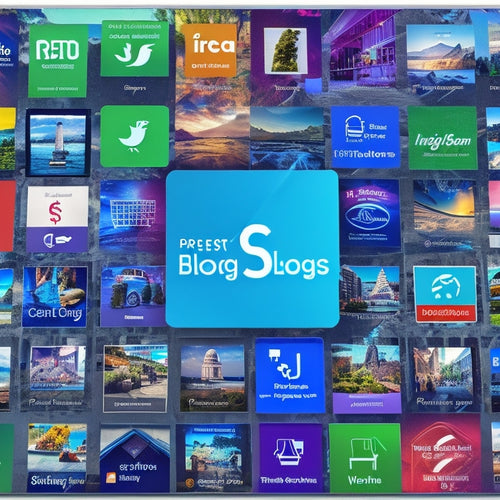
Maximize Tax Savings With Business Expense Breakdown
Share
By categorizing and tracking your business expenses accurately, you can claim deductions on a variety of expenses, from employee salaries and utilities to equipment and vehicle depreciation. This will help you maximize tax savings and improve your bottom line. Familiarize yourself with IRS guidelines and rules to guarantee compliance, and differentiate between typical business expenses, COGs, and capital expenditures. Effective expense tracking and categorization will help you identify areas for cost reduction and optimize your tax planning. Now, take a closer look at each expense category to unveil hidden opportunities for tax savings and business growth.
Key Takeaways
• Accurately categorize business expenses to claim all eligible deductions and maximize tax savings.
• Identify areas for cost reduction through data-driven decisions to minimize tax liabilities.
• Implement an expense tracking system to ensure compliance with IRS guidelines and rules.
• Depreciate business assets, deduct interest on loans, and claim employee benefits to optimize tax deductions.
• Analyze expense breakdown to refine tax planning, streamline operations, and improve the bottom line.
Understanding Tax-Deductible Expenses
As a business owner, you frequently incur various expenses to operate and grow your company, and understanding which ones are tax-deductible is vital to maximizing your tax savings.
You can claim deductions for employee benefits, such as salaries, wages, and bonuses, as well as rent or lease payments for business premises. Utilities like electricity, water, and internet are also tax-deductible.
Additionally, you can deduct interest on business loans and depreciation on business assets like equipment and vehicles. It's important to understand the tax implications of these expenses to make sure you're taking advantage of all the deductions available to you.
Navigating IRS Guidelines and Rules
You must familiarize yourself with IRS Publication 535, which provides invaluable guidance on the deductibility of business expenses, outlining general rules around tax filing and helping you differentiate between usual business expenses, cost of goods sold (COGs), and capital expenditures. By understanding these guidelines, you'll be better equipped to navigate potential IRS audits and guarantee compliance with tax regulations.
Effective expense management and cost control techniques are essential in minimizing audit risks and maximizing tax savings. Implementing robust expense tracking and categorization systems will help you accurately identify and claim eligible business expenses, reducing the likelihood of errors and discrepancies that could trigger an IRS audit.
Categorizing Business Expenses Effectively
Categorizing business expenses effectively involves organizing costs into distinct groups, allowing you to accurately track spending, identify trends, and make informed financial decisions that maximize tax deductions. This process is vital for optimizing expense categorization, which in turn, yields significant tax deduction benefits.
By grouping expenses correctly, you can:
-
Differentiate between essential and discretionary expenses, ensuring you allocate resources efficiently.
-
Recognize areas for cost reduction, enabling you to make data-driven decisions that boost your bottom line.
-
Streamline tax preparation, reducing the risk of errors and ensuring you claim all eligible deductions.
Maximizing Deductions With Accurate Tracking
By accurately tracking business expenses, entrepreneurs can identify areas for cost optimization and maximize deductions, ultimately leading to increased profitability and reduced tax liabilities. This is especially important when it comes to employee benefits, such as salaries, bonuses, and commissions, which can be deductible as business expenses. Additionally, asset capitalization rules apply to certain assets, requiring accurate tracking and reporting.
| Expense Category | Deductible | Notes |
|---|---|---|
| Employee Salaries | Must be reasonable and necessary | |
| Asset Capitalization | Follow IRS guidelines for depreciation | |
| Utilities | Fully deductible for commercial space renters | |
| Rent or Mortgage Costs | Eligible for tax deduction on interest rate | |
| Office Supplies | Deductible office supplies like stationery and cleaning supplies |
Optimizing Business Operations With Insights
Insights into business expenses empower entrepreneurs to fine-tune their operations, identifying areas ripe for optimization and opportunities to streamline processes. By analyzing your expense breakdown, you can pinpoint inefficiencies and make data-driven decisions to improve your bottom line.
Here are three key areas to focus on:
-
Identify bottlenecks: Pinpoint areas where costs are unnecessarily high, and implement changes to reduce waste and boost productivity.
-
Streamline processes: Use expense analysis to identify opportunities to simplify and automate tasks, freeing up resources for more strategic initiatives.
-
Refine tax planning: Leverage your expense insights to optimize tax planning, ensuring you're taking advantage of all eligible deductions and credits.
Managing Occupancy and Utility Expenses
You'll want to carefully review your occupancy and utility expenses to guarantee precision and maximize tax deductions, as these costs can be a significant portion of your business's overall expenditures.
Managing overhead costs, such as rent or mortgage payments, property taxes, and insurance, is vital for minimizing financial burdens.
Additionally, developing utility expense strategies can help you optimize expenses like electricity, water, and internet. By categorizing and tracking these expenses, you'll be able to identify areas for cost reduction and make informed decisions about your business operations.
Besides, accurate reporting of these expenses will ensure you're taking advantage of available tax deductions, ultimately leading to increased financial savings and stability.
Deducting Office Expenses and Assets
As you categorize and track occupancy and utility expenses, it's equally vital to focus on deducting office expenses and assets, which can have a significant impact on your business's bottom line. These expenses can add up quickly, and accurately tracking them is essential for maximizing tax savings.
Here are three key office expenses to keep in mind:
-
Office supplies: Stationery, cleaning supplies, and other essentials are fully deductible as business expenses.
-
Office equipment: Machinery, furniture, and other assets can be capitalized and depreciated over time, reducing your taxable income.
-
Patents and intellectual property: These assets can be capitalized and amortized, providing a valuable tax deduction.
Remember to follow asset capitalization rules and accurately track these expenses to make sure you're taking full advantage of the tax savings available to your business.
Claiming Business Trip and Marketing Expenses
When claiming business trip expenses, you must follow IRS guidelines to make sure that your travel costs, including flights, gas, hotels, meals, and parking, are accurately reported and deducted from your taxable income. This guarantees you maximize your tax savings and avoid any potential audits.
| Business Trip Expenses | Marketing Expenses |
|---|---|
| Flights, gas, hotels, meals, and parking | Advertising, promotions, and sponsored events |
| Travel-related expenses | Employee benefits, such as event tickets |
| Transportation costs | Technology expenses, like website maintenance |
Remember to keep precise records of your expenses, including receipts and invoices, to support your claims. Additionally, confirm that your marketing expenses are directly related to your business activities and align with your company's goals. By doing so, you can confidently claim these deductions on your tax return and enjoy the benefits of maximizing your tax savings.
Frequently Asked Questions
Can I Deduct Expenses From a Business I've Not yet Launched?
As you prepare to launch your business, you wonder if startup costs are deductible. Generally, the IRS considers pre-launch expenses as non-deductible startup costs, but some may be deductible as business expenses once you're operational.
How Do I Handle Business Expenses Paid With Personal Funds?
When handling business expenses paid with personal funds, you'll need to establish a reimbursement process, ensuring proper documentation, like receipts and invoices, to support tax deductions, while keeping meticulous records to avoid audit risks.
Are Business Expenses Paid in Foreign Currencies Deductible?
When you incur business expenses in foreign currencies, you can claim deductions after converting them to US dollars using the current exchange rate; guarantee accurate currency conversion deductions and international transaction deductions to minimize audit risks.
Can I Deduct Business Expenses for a Side Hustle or Freelance Work?
You can deduct business expenses for a side hustle or freelance work, but you must keep accurate records, separate personal and business expenses, and guarantee expenses are directly related to your freelance or side hustle income.
Are Business Expenses Related to COVID-19 Safety Protocols Deductible?
You can deduct business expenses related to COVID-19 safety protocols, including remote work deductions and PPE expenses, as they're considered ordinary and necessary business expenses, allowing you to minimize your taxable income.
Related Posts
-

What Makes Digital Products a Game-Changer for Sellers
You're about to open the full potential of your business with digital products, which offer unparalleled flexibility,...
-

How Does Shopify Help Marketing
This article examines the ways in which Shopify aids in marketing strategies. By analyzing the benefits of Shopify f...
-

Why Are Blogs Important in Shopify
The importance of blogs in the context of Shopify is a topic of interest in the field of e-commerce. This article ai...


